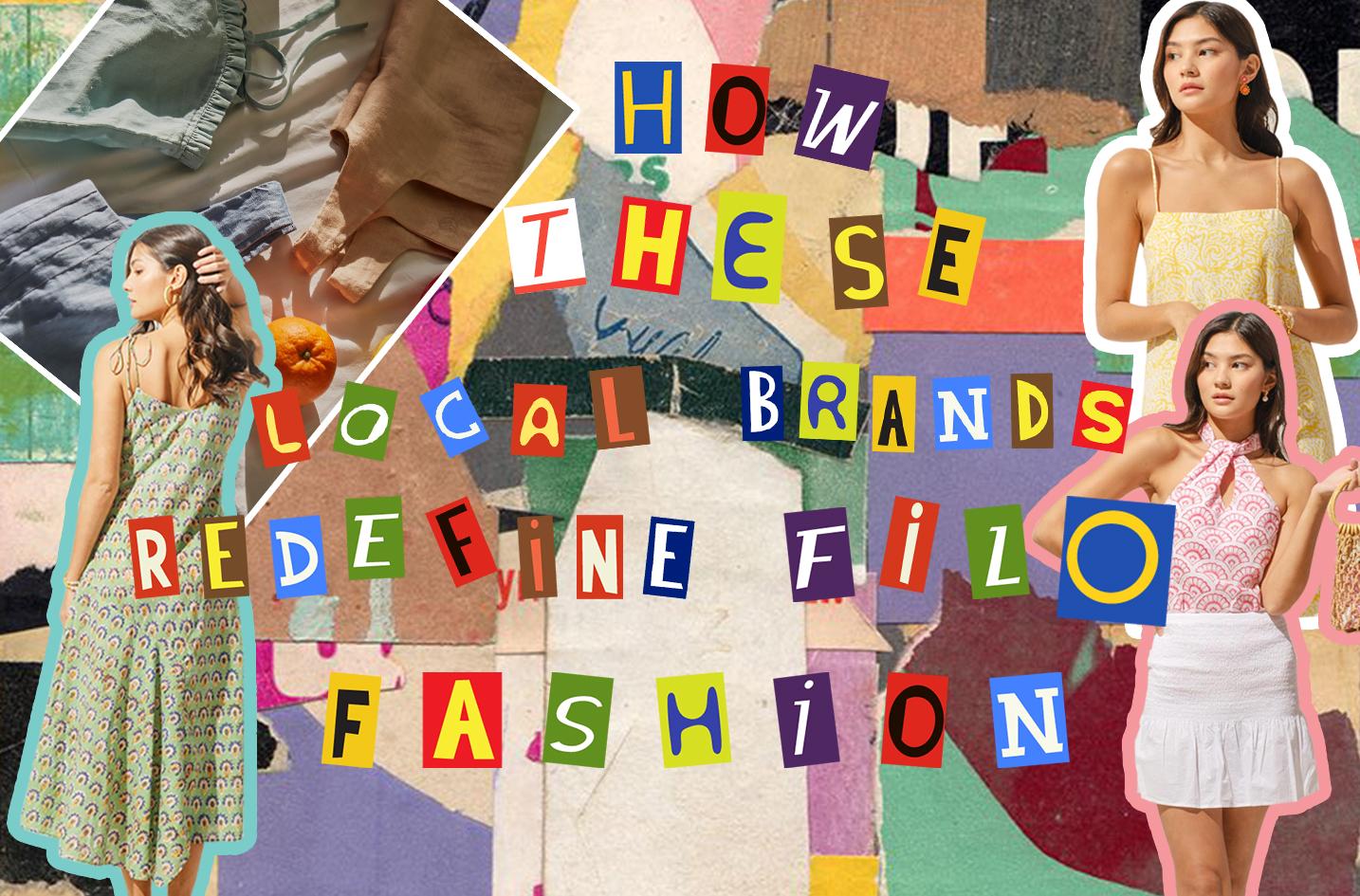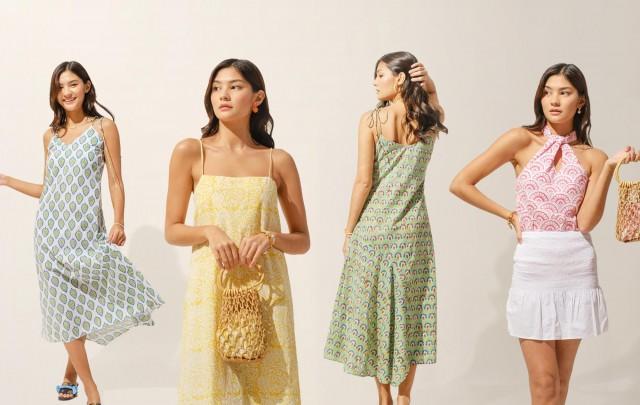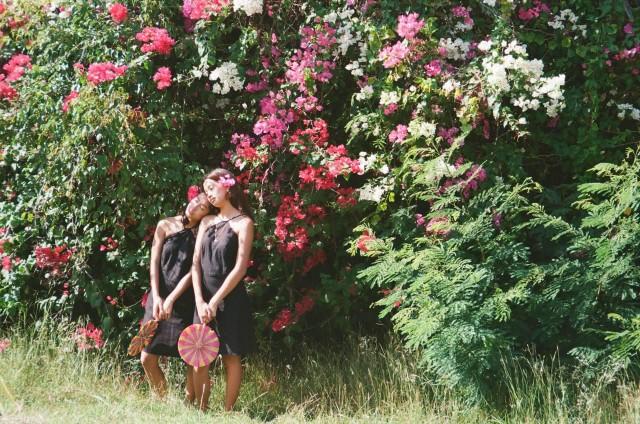#PINNED: These women-led collective brands are redefining Philippine fashion

#Pinned makes it easier for young Filipinos to discover meaningful and enriching content and stories that will help them separate music from the noise, wheat from the chaff, and flowers from the weeds.
All our stories are written by young creatives who made it their life mission to know everything there is to know about how fellow young adults can make the most out of their limited downtime every day, every week.
Fashion is an incredibly powerful tool for making people feel confident—it is about bringing out the best in others. The garments that drape from our skin are our everyday armor, with the ability to make us feel empowered. It should also be a fun and personal experience, especially when you have someone to share it with.
Amál
The three-women-led brand that began in 2018, founded by childhood friends, Gabbie Rodriguez, Gaby David, and Anya Limjoco wish to empower both men and women by creating timeless collections that celebrate creativity and confidence.
It is all in the details. Amál’s ready-to-wear collections are thoughtfully composed of pieces that are hand-made by local craftsmen in Manila. By incorporating different cultures in their clothing, their unique prints give their brand a distinct look that takes you on a trip to your favorite places.
Rodriquez, David, and Limjoco want their customers to feel connected to the brand by letting them in on the production process. They not only advocate fashion, but health and wellness through the Amál Lifestyle platform.

The concept store releases limited collections every month, making sure that its brand stays fresh. The range of their products extended to include unisex merchandise such as sweatshirts, tote bags, and caps, aside from their women’s wardrobe essentials. They even have something in store in the coming months, introducing candles, water bottles, and other new products in their lineup.
When you have a business, it is crucial to stand out from competitors. Amál aims to do just that by offering a broad product line—reaching and targeting consumers interested in a variety of items that are still aligned with the brand’s identity. Rodriquez, David, and Limjoco stressed that it is about going beyond fashion, coming up with fresh ideas, and paying attention to detail that not only keeps consumers interested, but keeps them on their toes.
The core of Amál is to champion creativity, which is represented in their talented roster of local artists and artisans through Art for Art’s Sake (AFAS).
AFAS is an outlet that stimulates creativity amongst the community through tutorials, Q&As, recipes, workout videos, Live DJ sets, and playlists posted on the Amál Instagram page—a platform to keep people inspired during these unprecedented times.
 Photo courtesy of Amál
Photo courtesy of Amál
Prioritizing to create and build a brand in the most sustainable way, Rodriquez, David, and Limjoco want to promote a guilt-free shopping experience by ensuring that their customers are mindful of where and how each piece is made.
Sustainability has been a part of our mind lingering questions every time we purchase a new clothing item.
Tela
Compared to any other good, clothing has higher usage, creating a bigger impact on sustainability. Alyssa Lagon founded Tela in 2019 to create clothes that will bridge the gap between what is already in the existing market—closing the loop and building a greener collaborative future for everyone to thrive in.
Tela, which means fabric in Filipino, is a homegrown sustainable and ethical fashion brand. Lagon said that stories are told through the different materials that were recycled, repurposed, and sustainably sourced, but more importantly, the opportunity to provide a livelihood for local sewers, artisans, and craftsmen are also highlighted in the brand.

Since fashion is continuously evolving, Tela is constantly on the lookout for materials that would fall under its 4R spectrum of sustainability. Refresh by using fabrics made out of natural or recycled fibers. Revive by using fabrics made out of handwoven production offcuts. Renew by turning patched-up production offcuts into unique patterns. Reverse by combining existing fabric to create even more versatile pieces.
The brand answers the call to have an end-to-end environmentally conscious local brand that not only promotes ethical fashion, but revives the Filipino traditional artistry of handweaving. Tela’s clothing is done in-house, giving Lagon more control over the quality and inventory of her pieces; responding to the needs of the market, without overstocking.
Sustainability means designing with intention. Tela’s zippers are made of recycled plastic bottles, while their buttons are hand-sewn from production offcuts. This way, the brand is making small steps to help save the environment.
 Photo courtesy of Tela
Photo courtesy of Tela
Tela plans to reshape Philippine fashion by taking care of their workers, a team that is paid well with benefits, is under a healthy working environment; and inspires people to go back to their roots. Using the country’s natural resources like bamboo, pina, Philippine cotton and silk, and abaca will lessen the negative impact on the environment and provide more livelihood opportunities to local farmers.
“We intend on continuing and pursuing this brand to raise awareness that local fabrics are at par or are even better than the ones you find abroad,” Lagon said.
---
Aimee Lontok is a writer who got her bachelor of arts degree in journalism. She is passionate about discovering the secret gems of fashion, travel, food, art and culture—with the hope that sharing these stories will provide any reader an escape from reality.



